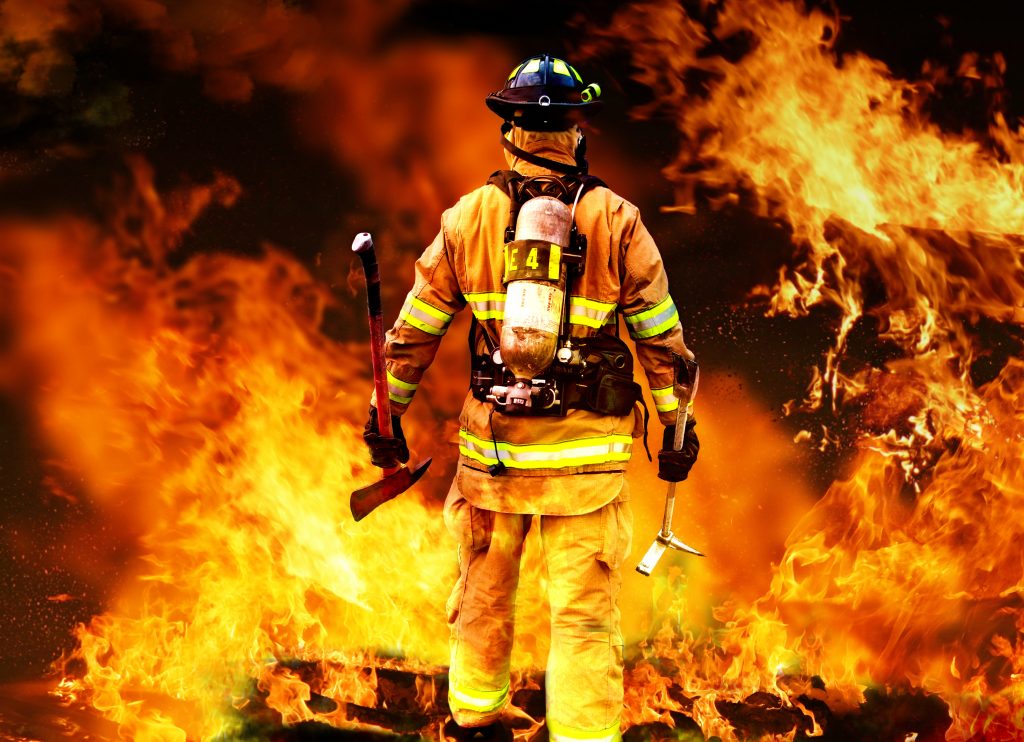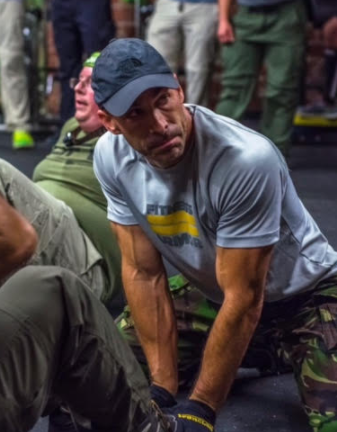
This article has been published in January 2017
By Captain Joe Hogan
I’ve spent nearly a quarter-century on the Fire Department, most of it on the line. I am of limited education and talent but I’ve flourished here. The job has been good to me, so I assumed this was a good time for a nostalgic review of my successes. A mentor, however, has encouraged me to look back at my mistakes instead. Those take a little more soul searching and have asked more of me than I first wanted to give, but I think he’s onto something. I’ve still got ways to go. It’s a bit too early to celebrate.
The ones that really stick with me are the habitual mistakes. The things that have appeared over and over again. If I’m honest, they are the things I still catch myself doing from time to time. I call them my “favorite mistakes” because I seem to have an affinity for them. I’ve gotten a little better about them, but I don’t know if that’s because I’m improving or slowing with age.
Maybe relating my favorite mistakes will make me more self-aware. Maybe a few brothers and sisters will recognize the mistakes in themselves and cut them off at the pass. If nothing else, this will be an “I told you so” moment for those who’ve had to work or live with me over the years. So, do with them as you will.
Taking Myself Too Seriously
The fire department is a big deal for me. It took me at 21 and practically raised me. It has given me a sense of purpose and provided me with a good living. It is a big part of my identity. I, on the other hand, am not a big deal for the fire department! The FD was fine before I came along, and the FD will be fine when I’m gone. It’s not about me! That concept has evaded me all too often. I’ve missed opportunities to build friendships during times of success and I’ve missed chances to learn when I’ve failed. All because I’ve focused on myself.
I do think a degree of ego is necessary for a job like this. You’ve got to believe in your own abilities before you can crawl into boiling smoke and you’ve got to take it personally when you mess up a hose stretch or misdiagnose an EMS patient. Ego drives our sense of personal accountability and pride. But ego must be tempered with humility, and that can be a difficult balance. I’ve known my share of lousy firefighters and they’ve always demonstrated either a total lack of ego or one unchecked by humility. I’ve fallen into the latter category too often.
What helps? A sense of humor. It is, in my opinion, the single most important trait for long-term survival in the firehouse. And one does not have to be a comedian in order to laugh at one’s self. I’ve learned that as long as firefighters will laugh in your face they have not given up on you. So I try to laugh along and I try to see the humor in my own failures and successes. It’s a work in progress but it becomes easier with practice.
Underestimating Others
I was a young, taking classes and pouring over trade journals, while assigned to a company mostly populated with older, and apparently less ambitious firefighters. We conducted a company drill in which we were rescuing a “downed firefighter” from a darkened room. The evolution was a sloppy lesson in tugging and wasted effort, but we met the objective. I was frustrated with the results, failed to mask it in the post-drill hotwash and was called out. The senior man said, “Kid if you’ve got a better way to do this, speak up or wipe that look off your face.” So, I reluctantly walked them through some slick rapid intervention techniques I’d learned and we repeated the drill. The guys applied the techniques flawlessly and the evolution went ten times better! I was told, “Next time speak up so we don’t have to do the damn drill twice!”
I assumed things that day about men who’d been doing the job since I was in diapers. I assumed because they didn’t act eager they were lazy or resistant. So, I held back on my company and learned a hard lesson. These people were quiet professionals. Their lack of bravado was not a lack of desire. When presented with street-smart, practical techniques, they were eager to apply them.
I have worked in the firehouse among some of the most talented people in the world. Olympic athletes, scholars, decorated veterans, and community leaders to name just a few. I’ve also seen tremendous examples of decency and courage from firefighters without worldly accomplishments on their resume, outside of high school and fire academy graduation. Over time I’ve learned that these individuals will be quiet and unassuming to a fault. Firehouse culture discourages self-promotion, so solid people tend to be low-key.
I have also served and cared for some of the most decent and deserving of humanity. Individuals who are at the very bottom rung of society, yet exhibit dignity, class, and courage. We serve people who are struggling and struggle can bring out greatness. But again, these people are hard to spot at a distance due to a myriad of circumstances.I’m not being naive. I know there is no shortage of slug firefighters or scumbag citizens. But I’ve spent too much of my career focused on them and it’s helped no one. Focusing on them hasn’t changed them, it’s only darkened my own outlook.
Speaking My Mind Too Soon
Most time on the fire department is spent doing anything but being at an emergency scene. The idle conversation is mostly jokes, sports talk, and mild gossip. All in all, it’s hard to mess that up. But the more professional conversations have been tricky for me. The job means a lot to me and I have strong opinions about it. The problem is, I’m not the only one who cares about the job and has opinions. Asserting my opinions too soon or too often has caused me some regret.
I seemed to know more early in my career than I do now. I held inflexible opinions because I lacked experience. Time has a way of breaking down our assumptions. You’ll rarely catch a seasoned firefighter tossing around “always” or “never” when talking about operations. I was quick to espouse my untested philosophies. I should’ve given most of them time to simmer. I could’ve maintained a degree of credibility among my peers if I’d spent more time experiencing fires or other scenes and less time reciting the rules I’d memorized about them.
I’ve also learned that believing I’m right, or even being right, is not justification alone for a blowout with my superiors. I was once impetuous enough to have a heated argument with a high ranking chief over what I believed to be an unfair transfer. I realize now that venting after the order had been written was immature and unprofessional. Furthermore, it used up whatever passes I might have had with that chief, over an issue that only impacted me. That was selfish. I’d burned a bridge I might’ve been able to use later in defense of my people.
Treating My Family Like Firefighters
We, firefighters, are “tactical types”, meaning we are conditioned to think and act tactically. This was made clear recently, as I spent several days training and brainstorming with a small group of high-level practitioners from across the mountain-tactical spectrum. I was struck with how similar the thought patterns were among the fire, law enforcement, and military types. While our missions are quite different, we all seem to be linear and systematic problem solvers. The mountain athletes and designers, on the other hand, tended to be circular and holistic. I was fascinated by the way they approached topics and how original and cooperative their solutions were. I found this approach to be vaguely familiar. It reminded me of a few good women in my life.
While a fire department runs according to a paramilitary system, a family does not. Spouses and children should not be conditioned to follow orders or think tactically. A family is not bound by rank, but by love and common experience. A family is circular and holistic. Far too often I’ve approached my spousal and parental relationships as if I was directing a fire company on scene. In an emergency, a poor decision is often better than none at all. A quick size up, decision and decisive action are the hallmarks of sound fireground leadership. The ability to do this has worked to my professional benefit but has often placed an unreasonable amount of pressure on my children and deeply taxed the patience of the two loving women who’ve helped me raise them.
What helps? I take no personal credit for my slow transformation at home. Honestly, I’ve probably fought it every step of the way. But I’ve seen how my wife pauses before she speaks to the kids. I’ve seen how she picks her battles and gives freedom for them to safely roam. She is in no way weak or ineffective. In fact, she’s tough as nails when needed. She just has a long fuse and a relaxed approach to conflict. In the presence of this, my own actions are a little embarrassing and I’m starting to relax my grip. I’m a long way from the laid back and cooperative father and husband I want to be, but I’m definitely not playing company officer at home as often.
Pretending I Can Handle it All Alone
I’ve seen some horrific things. A little girl with the skin burned off her back. A handsome young man who killed himself in front of his own father. The charred body of a teenage girl trapped in a burnt-out car. I’ve also seen a mountain of less dramatic tragedy. The displaced, the addicted, the lonely and the dying. This has been my workplace for over two decades. I’ve never been haunted by nightmares or flashbacks, so I wrongly assumed I was not being impacted.
Good Luck
